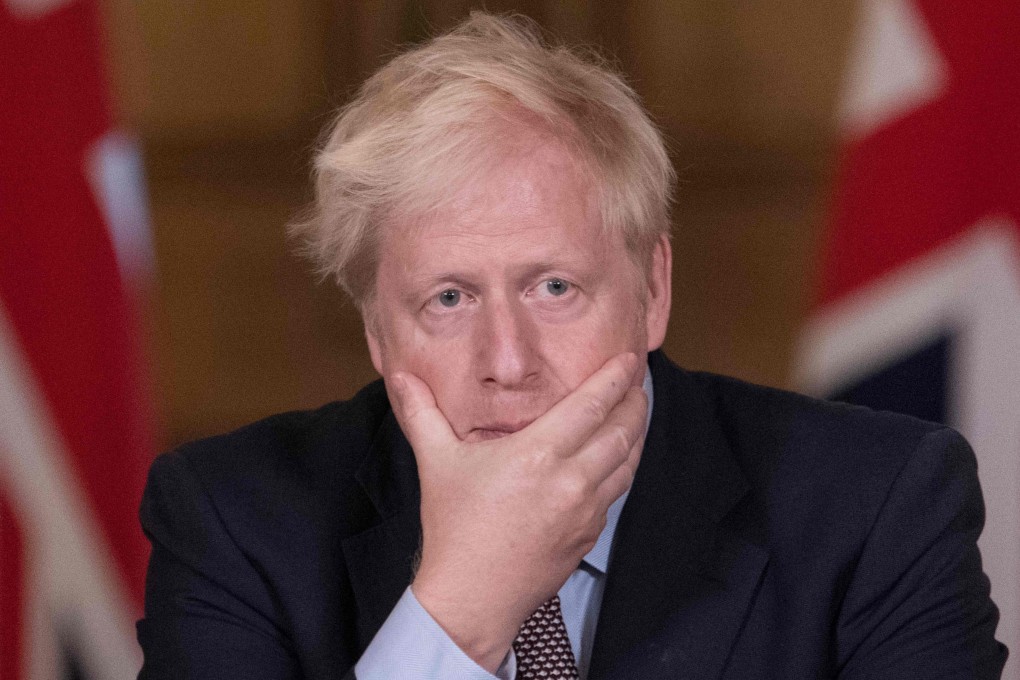Advertisement
PM Boris Johnson says Britain’s obesity levels are a big coronavirus risk
- Johnson, who had a spell in intensive care in April, says he is now ‘fitter than several butchers’ dogs’
- He warns of a ‘very tough’ winter ahead, with difficulties lasting through Christmas and beyond
Reading Time:3 minutes
Why you can trust SCMP

British Prime Minister Boris Johnson on Sunday said he felt “fitter than several butchers’ dogs” after contracting Covid-19 earlier this year, and that he was sure US President Donald Trump would be “fine”.
Johnson, who had a spell in intensive care in April, told The Andrew Marr Show on the BBC he was not feeling any lingering effects and that he had lost weight.
Johnson on Sunday also pointed out that obesity could be a problem when it came to fighting the virus, but did not specifically address Trump’s weight.

03:30
World leaders wish Trump and Melania speedy recovery from Covid-19
World leaders wish Trump and Melania speedy recovery from Covid-19
“This is an important point, obesity – I’m not making any comment on President Trump – but obesity, since you mention cheeseburgers, is one of the problems that this country needs to address,” Johnson said after being asked if Trump should eat fewer cheeseburgers.
Advertisement
“The most important thing to do is follow his doctors’ advice,” he said.
“When I got this wretched virus, I was too fat,” he said. “The teachable point for us in Britain is that, as a nation, we are too fat.”
Advertisement
Trump is currently being treated at a military hospital after he and his wife tested positive for the coronavirus last week.
Advertisement
Select Voice
Select Speed
1.00x